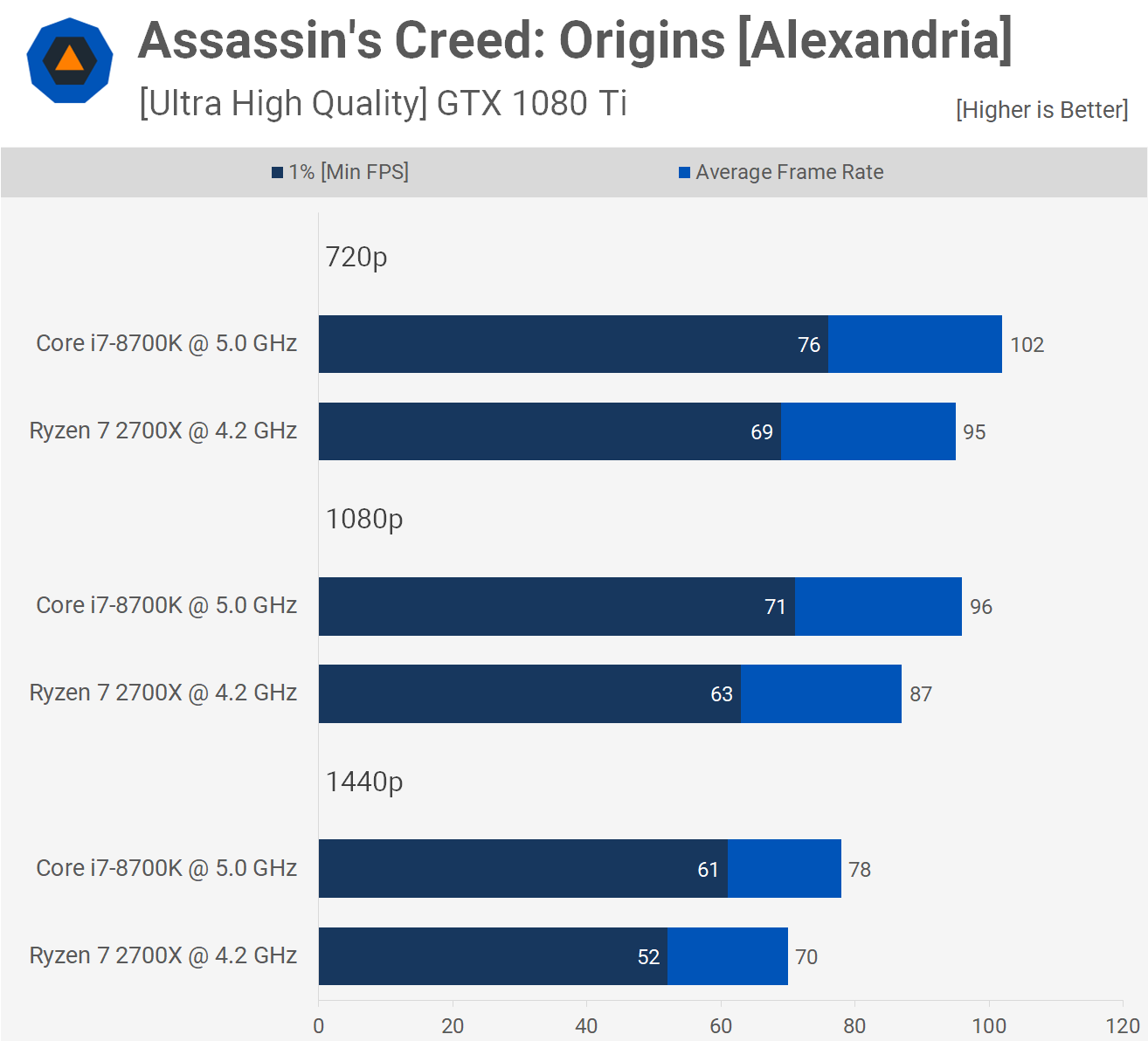No doubt Ryzen benefits greatly from faster memory (plus tight timings such as 'Stilts' presets) whereas Intel seems to benefit more from sheer bandwith, as shown by the DDR4-4000 numbers.You'll likely see bigger swings on Ryzen just going from DDR4-2133 to DDR4-3200. Getting DDR4-4000 to run on any AM4 setup is (currently) nearly impossible.
A 8700K / 9900K @ 5GHz with DDR4-4000 would be the ultimate combination to go with a 2080 Ti, actually I wouldn't be surprised to see *that* particular setup pull 30% ahead of a Ryzen setup, but you'll never see that in a review because (rightly or wrongly) reviewers will usually stick to DDR4-3200 for both platforms for 'fairness'.




